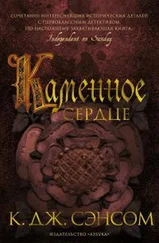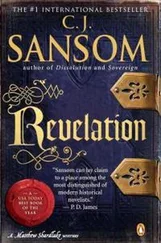The coming of a royal Herald had been preceded by the delivery of a letter to Kett the day before. If, as is possible, this was Letter No. 2 appended to Shagan’s 1999 article quoted above, 9it consisted of a particularly fierce diatribe, stating that it would allow the rebels to petition the coming Parliament with their grievances provided they dispersed. Otherwise it offered nothing new.
The Herald’s visit to the camp was a moment of high drama. He rode up to Mousehold from Norwich, accompanied by Codd and Aldrich and the city sword-bearer, Pettibone; he allowed himself to be led to the Oak of Reformation, and there delivered to the massed camp-men a proclamation that roundly abused them as traitors and, particularly, ‘Kett, man of mischief’. It offered a pardon to those who dispersed – and nothing else. Kett responded angrily that ‘hee had not offendid or deserved the Kings pardon and soe requird as many as would ... to take his part and remain’. 10Neville reports Kett asking the company ‘not to leave him, nor to be fainthearted, but remember with what conditions they bound themselves, either to other, and that he for his part was ready to bestow his life (if need were) for their safetie’. 11The Herald then accused Kett of high treason, and ordered Pettibone to arrest him, but the threatening demeanour of the camp-man forced the Herald’s party to flee. A minority (we do not know how many) did accept the pardon and left the camp, but the great majority remained. 12
Back in Norwich, the Herald ordered Codd and Aldrich to shut the gates against the rebels ‘and keepe them from victual’. 13This emphasizes the importance, mentioned above, of Norwich market in feeding the rebels.
ARMED CONFLICTS : 21 JULY TO 1 AUGUST
The Herald’s order to close off Norwich, almost certainly a fallback position ordered by Somerset, was extremely foolish, for it left the camp-men with no alternative but to invade and breach the weak city walls. The Herald remained in the city, proclaiming his message there, perhaps hoping for the townspeople’s support, but once again he was gravely mistaken; Sotherton reports that ‘soon after they perceived that through ye falsehood of many of their citizens the said rebels were entried [entered].’ 1
Next morning, 22 July, the camp-men launched a full-scale invasion, having first attempted and failed to negotiate a peaceful entry. 2Half a dozen cannon from the castle had been brought within range of the rebels, but neither the city’s gunners nor the rebels with their own guns showed (at this stage) any skill in aiming, although the city bowmen on the walls (probably servants of leading citizens, constables, and soldiers from Norwich Castle) caused many casualties. There were two huge charges down the hill towards Bishopsgate Bridge, the crucial strategic point: the first failed but the second succeeded by force of numbers. According to Sotherton, ‘vagabond boys ... came emong the thickett of the arrows and gathered them up when some of the seid arrows stuck fast in their leggs’. 3‘Boys’ in Tudor usage meant young unmarried men; the story of pulling out the arrows is plausible if, as is likely, practice arrows without barbed heads were used. The charges displayed the fierce courage that the rebels were to display from now on. They were helped by supporters in the city calling out that the enemy were within the walls, to distract city forces from Bishopsgate Bridge. 4
The whole of Norwich was now annexed to the rebel camp; its six cannon were taken up to Mousehold. Codd, Aldrich and other leading citizens were taken prisoner, except for one leading Alderman, Augustine Steward, whom Kett appointed his deputy in the city to keep order (though no doubt aware of the limits of his loyalty.) After an initial few days of looting, the city, like the camp, was kept in remarkably good order; the defenders on the walls were now from the camp. The Herald fled back to London. Trials at the Oak continued, now including senior citizens of Norwich, where according to Neville ‘if they [the camp-men] found nothing of the man in question, cryed out, A good man, hee is a good man; and therefore ought to be set at liberty. But ... if ... hee had offended any one of them ... The common sort followed, as it were stirred up of the furies, “let him be hanged.”’ 5Given that no gentleman was ever named as hanged at the camp, either Neville was romancing or, more likely, the camp leaders refused to allow it to happen.
The number of Mousehold men who perished in the fierce assault is not known, but is unlikely to be less than a hundred. Now a new reality must have entered camp life – sudden death, grief for fallen comrades, family or friends. But they remained determined not to budge.
It is not known how much territory Kett controlled from Mousehold; Land suggests fifteen to twenty miles. 6Attempts were made to expand into north and central Norfolk in July. Late in the month a camp was formed near King’s Lynn, probably aimed at its capture. However the local gentry – who, having recovered from their initial shock, were now becoming organized – managed to dislodge the insurgents, who withdrew twenty-five miles south to Watton, on the road from London, possibly to try and impede the army that was now expected to come from there. Early in August they abandoned the site and joined the Mousehold camp.
A separate camp was formed at Hingham, fifteen miles from Norwich, again perhaps to protect the road to London; however they were attacked and dispersed by a local force under Sir Edmund Knyvett.
Meanwhile a small group from Suffolk marched against Great Yarmouth, but the townspeople refused to admit the rebels. Thus all attempts to spread the camp’s area of control, including what would have been the significant prizes of Norfolk’s two major ports, failed. And news soon reached the camp of the preparation of an army in London.
What were the rebels to do now? Kett’s original strategy (not unreasonable given Somerset’s promises of reform) had failed. The camp had two choices: fight or surrender. If they fought and won, they might win concessions from Somerset and even spread rebellion further. London was quiet, but martial law had been declared and rebellion there was feared. 7If they surrendered, many must have feared, given what they had done to the gentry, that they would be massacred. And as we shall see, there were many who believed the forces coming against them had not been sent by Somerset at all, but by local gentry and their sympathizers on the Council. Among many, the failure to realize what sort of man Somerset actually was persisted to the end.
Command of the army sent from London was given to William Parr, Marquess of Northampton, who had risen solely because he was Queen Catherine Parr’s brother. He was a courtier, not a soldier. The same is true of his deputy, Edmund, Baron Sheffield. Sheffield seems to have been a young gentleman thug – he and three relatives once attacked his brother-in-law’s mistress, disfiguring her to break up their relationship. 8
The army probably consisted of a mixture of professional soldiers and men conscripted from other areas. 9Local gentry who had fled returned, together with some high government officials, and formed the junior leadership. Interestingly Sir Richard Southwell, who can only have returned to London recently from Norwich, was also there. The army not only lacked serious professional commanders, but was far smaller than the camp – around 1,500, and including a number of Italian mercenaries. 10Most government forces were engaged in Scotland and against the Western and Oxfordshire rebellions, and Somerset perhaps thought that as 1,500 men had put down the Oxfordshire rebels, the same number might suffice for Norwich.
On 31 July, having possibly put down the camp at Thetford along the way, Northampton arrived outside Norwich. Another Herald was sent to call for the city’s surrender: Augustine Steward smartly passed the buck to Mayor Codd, under guard at Surrey Place, who agreed to allow Northampton’s forces in. As he was a prisoner this must have been with Kett’s authority. Northampton’s forces entered without resistance, Southwell bearing the city sword before him, and settled down for the night. 11They had walked into a trap.
Читать дальше
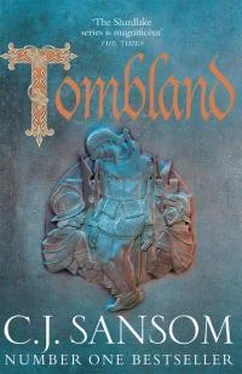



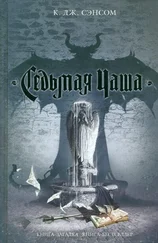
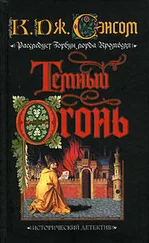
![К Сэнсом - Стенание [другой перевод]](/books/432043/k-sensom-stenanie-drugoj-perevod-thumb.webp)
